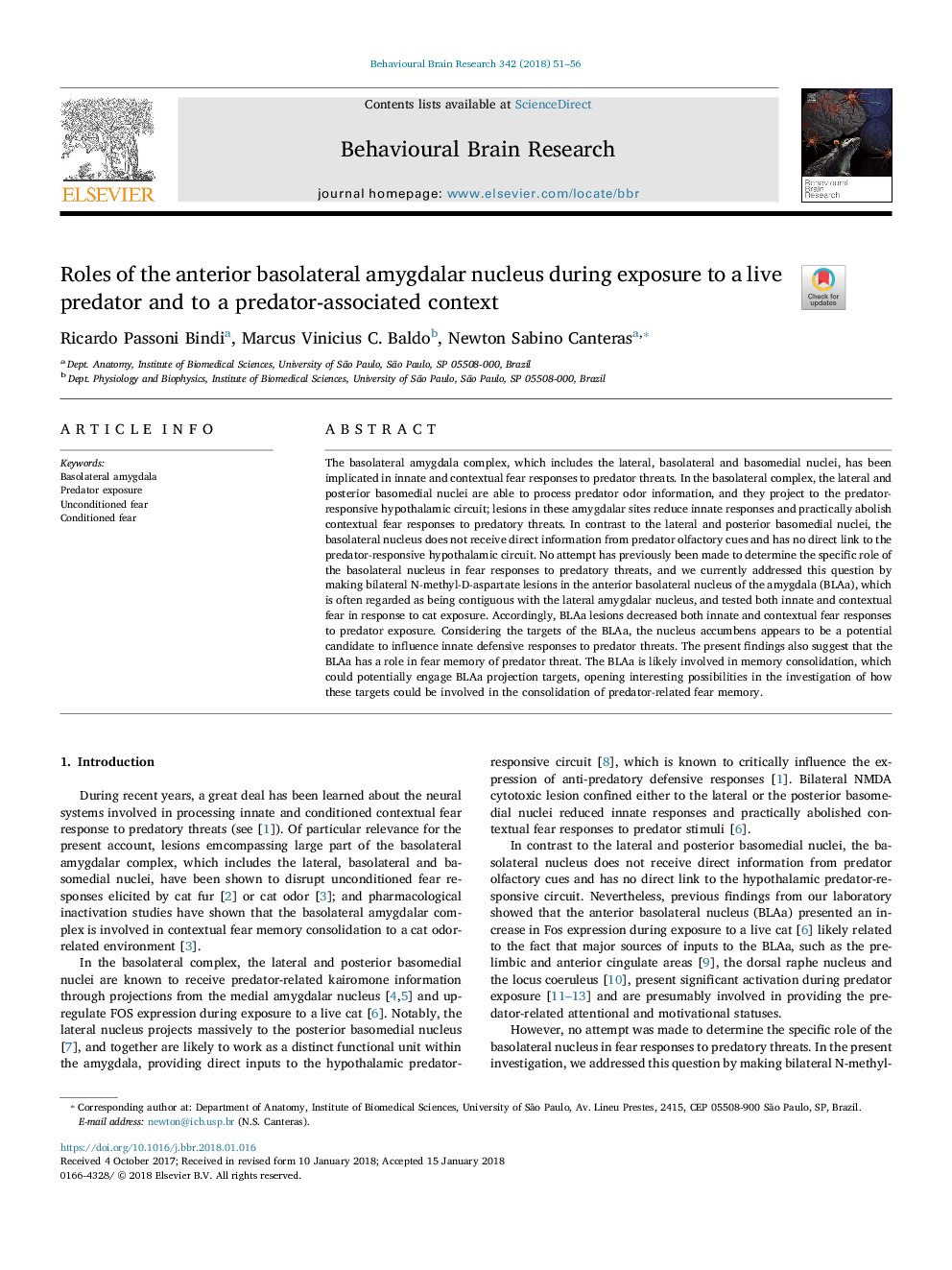ترجمه فارسی عنوان مقاله
نقش هسته قارچ قدام قدامی در هنگام قرار گرفتن در معرض یک شکارچی زنده و یک زمینه مرتبط با شکارچی
عنوان انگلیسی
Roles of the anterior basolateral amygdalar nucleus during exposure to a live predator and to a predator-associated context
| کد مقاله | سال انتشار | تعداد صفحات مقاله انگلیسی |
|---|---|---|
| 159036 | 2018 | 6 صفحه PDF |
منبع

Publisher : Elsevier - Science Direct (الزویر - ساینس دایرکت)
Journal : Behavioural Brain Research, Volume 342, 16 April 2018, Pages 51-56
ترجمه کلمات کلیدی
آمیگدالای ناحیه پشتی، قرار گرفتن در معرض شکنجه، ترس بی قید و شرط، ترس متعادل
کلمات کلیدی انگلیسی
Basolateral amygdala; Predator exposure; Unconditioned fear; Conditioned fear;

